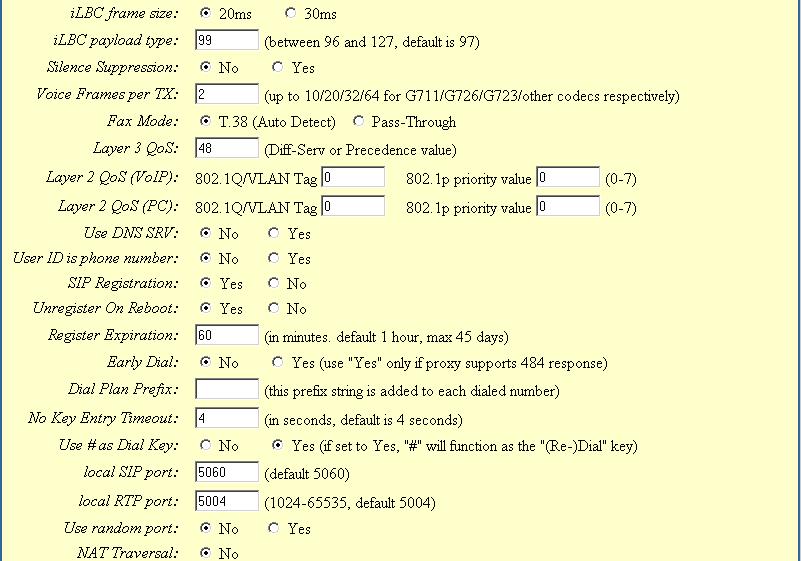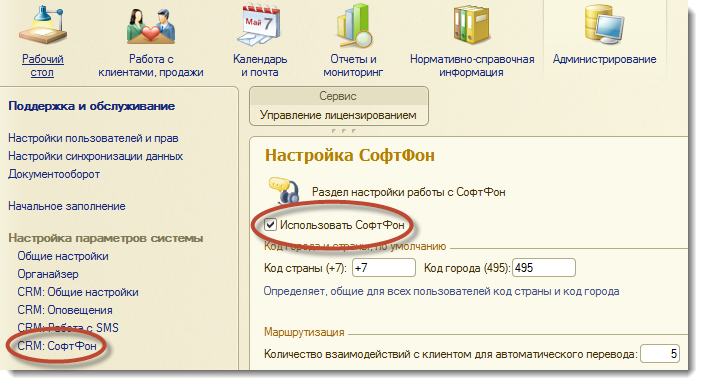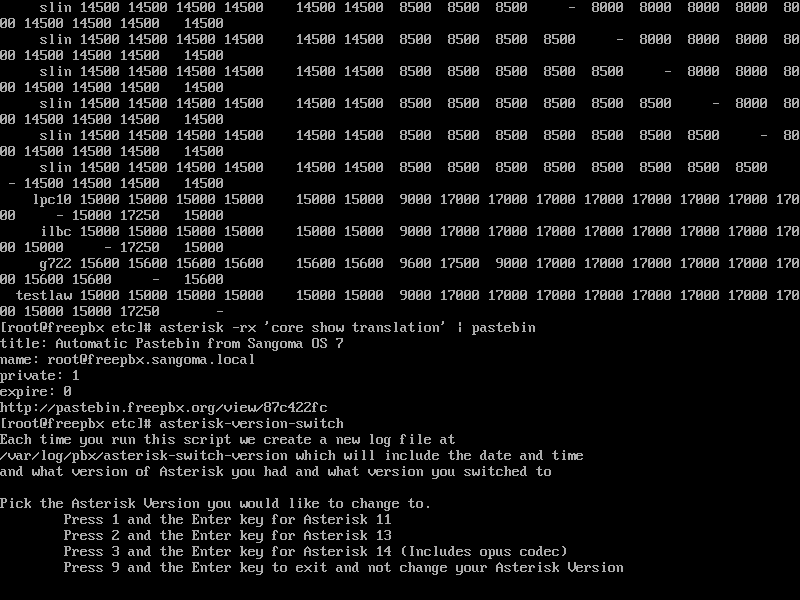The Asterisk build system will now build and install a. The iLBC codec can now use a system. Asterisk Key Revealer The code produces a Asterisk modules, codec. This tutorial will let you install the G729 Codec on an Asterisk installation in under 5 minutes.
Codecs Codecs are generally understood to be various mathematical models used to digitally encode (and compress) analog audio information. Many of these models take into account the human brain’s ability to form an impression from incomplete information. We’ve all seen optical illusions; likewise, voice-compression algorithms take advantage of our tendency to interpret what we believe we should hear, rather than what we actually hear. The purpose of the various encoding algorithms is to strike a balance between efficiency and quality. Originally, the term codec referred to a COder/DECoder: a device that converts between analog and digital.
Now, the term seems to relate more to COmpression/ DECompression. Before we dig into the individual codecs, take a look at —it’s a quick reference that you may want to refer back to.
G.711 G.711 is the fundamental codec of the PSTN. In fact, if someone refers to PCM (discussed in the previous chapter) with respect to a telephone network, you are allowed to think of G.711. Two companding methods are used: μlaw in North America and alaw in the rest of the world.
Either one delivers an 8-bit word transmitted 8,000 times per second. If you do the math, you will see that this requires 64,000 bits to be transmitted per second. Many people will tell you that G.711 is an uncompressed codec.
This is not exactly true, as companding is considered a form of compression. What is true is that G.711 is the base codec from which all of the others are derived. G.711 imposes minimal (almost zero) load on the CPU. G.726 This codec has been around for some time (it used to be G.721, which is now obsolete), and it is one of the original compressed codecs. It is also known as Adaptive Differential Pulse-Code Modulation (ADPCM), and it can run at several bitrates. The most common rates are 16 Kbps, 24 Kbps, and 32 Kbps. As of this writing, Asterisk currently supports only the ADPCM-32 rate, which is far and away the most popular rate for this codec.
G.726 offers quality nearly identical to G.711, but it uses only half the bandwidth. This is possible because rather than sending the result of the quantization measurement, it sends only enough information to describe the difference between the current sample and the previous one. G.726 fell from favor in the 1990s due to its inability to carry modem and fax signals, but because of its bandwidth/CPU performance ratio it is now making a comeback. G.726 is especially attractive because it does not require a lot of computational work from the system. G.729A Considering how little bandwidth it uses, G.729A delivers impressive sound quality.
It does this through the use of Conjugate-Structure Algebraic-Code-Excited Linear Prediction (CS-ACELP). Because of patents, you can’t use G729A without paying a licensing fee; however, it is extremely popular and is, thus, well supported on many different phones and systems. To achieve its impressive compression ratio, this codec requires an equally impressive amount of effort from the CPU.
Ilbc Codec Wiki
In an Asterisk system, the use of heavily compressed codecs will quickly bog down the CPU. G.729A uses 8 Kbps of bandwidth.
ILBC The Internet Low Bitrate Codec (iLBC) provides an attractive mix of low bandwidth usage and quality, and it is especially well suited to sustaining reasonable quality on lossy network links. Naturally, Asterisk supports it (and support elsewhere is growing), but it is not as popular as the ITU codecs and, thus, may not be compatible with common IP telephones and commercial VoIP systems.
IETF RFCs 3951 and 3952 have been published in support of iLBC, and iLBC is on the IETF standards track. Because iLBC uses complex algorithms to achieve its high levels of compression, it has a fairly high CPU cost in Asterisk.
While you are allowed to use iLBC without paying royalty fees, the holder of the iLBC patent, Global IP Sound (GIPS), wants to know whenever you use it in a commercial application. The way you do that is by downloading and printing a copy of the iLBC license, signing it, and returning it to GIPS. If you want to read about iLBC and its license, you can do so. ILBC operates at 13.3 Kbps (30 ms frames) and 15.2 Kbps (20 ms frames). Speex Speex is a variable bitrate (VBR) codec, which means that it is able to dynamically modify its bitrate to respond to changing network conditions. It is offered in both narrowband and wideband versions, depending on whether you want telephone quality or better. Speex is a totally free codec, licensed under the Xiph.org variant of the BSD license.

An Internet draft for Speex is available, and more information about Speex can be found at its home page. Speex can operate at anywhere from 2.15 to 22.4 Kbps, due to its variable bitrate. CELP is a popular method of compressing speech. By mathematically modeling the various ways humans make sounds, a codebook of sounds can be built. Rather than sending an actual sampled sound, a code corresponding to the sound is determined. CELP codecs take this information (which by itself would produce a very robot-like sound) and attempt to add the personality back in.
(Of course, there is much more to it than that.) Jason Woodward’s Speech Coding page is a source of helpful information for the non-mathematically inclined. This is fairly heavy stuff, though, so wear your thinking cap.
Ilbc Codec

I have actually been trying to install the iLBC codec over the last couple of weeks. I found the page that you mentioned and followed the instructions but it would not compile. I had another look just then and I have now got it working and Asterisk now sees the iLBC codec installed. For me changing to the contrib/scripts folder did not work. Sure the script ran but at compiling time the compile failed at iLBC.
I found that if you go into the Asterisk folder and then run contrib/scripts/getilbcsource.sh fixed the problem and installed correctly. It seems that you need to be in the Asterisk source code folder and not the contrib/scripts folder to run the getilbcsource.sh script.
Ilbc Codec Mos
I first tried copying over a version I had on another install and it did not work. The file was only 10% of the size or so of the file you emailed me (thanks for that).

It did not work. I then tried the file you emailed me, but it did not work either.
I am running the 64 bit version of Elastix 1.5.2-2 with Asterisk (Ver. Are there different versions for different processes like the G729 codec? Is there a 64 bit version?
I have placed the codec file in the /usr/lib64/asterisk/modules, not the /usr/lib/asterisk/modules. I have not been able to get the g729 codec to work either.
Hmmm, may be the 64 bit version is where I got to adventurous.